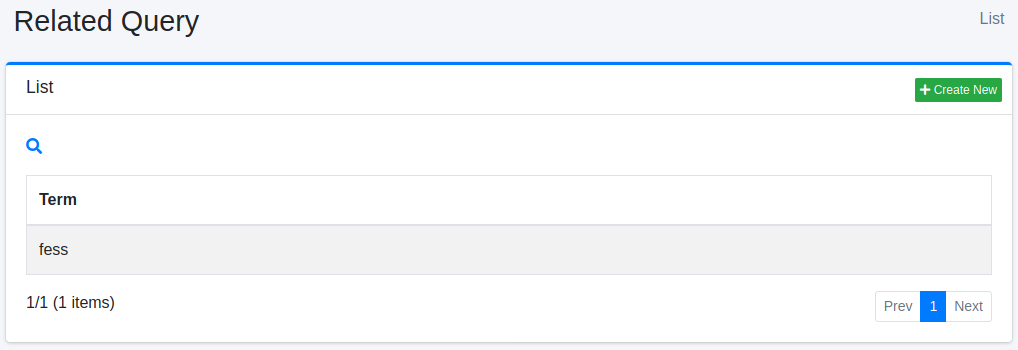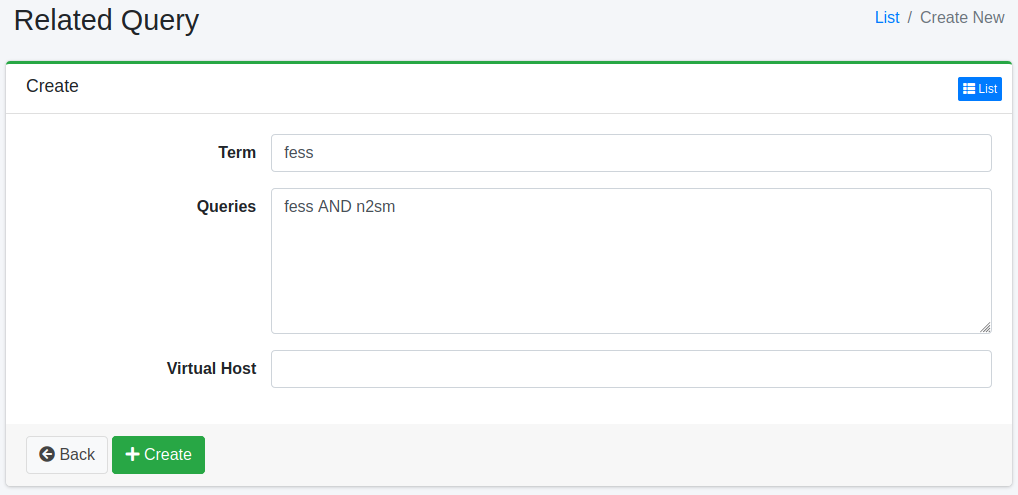Overview
Here, we will explain the settings for Related Queries. By configuring Related Queries settings, you can improve search results using registered related queries. Related queries can be used as alternative terms for search queries.
Management Operations
Display Configurations
To open the list page for configuring Related Queries shown below, click on “[Crawler > Related Query]” in the left menu.

To edit, click on the configuration name.
Create Configuration
To open the Related Queries settings page, click on the “Create New” button.

Configurations
Term
Specify the search term that you want to match with the search query.
Queries
Specify the query.
Virtual Host
Specify the hostname of the virtual host. For more information, refer to the Virtual Host section of the configuration guide.
Delete Configuration
Click on the configuration name on the list page, and when the delete button is clicked, a confirmation screen will appear. Clicking the delete button will remove the configuration.